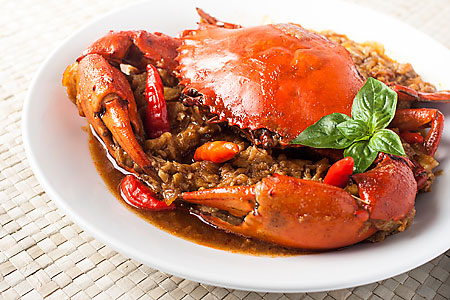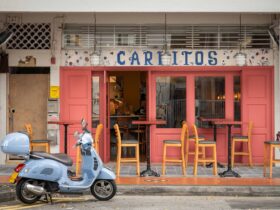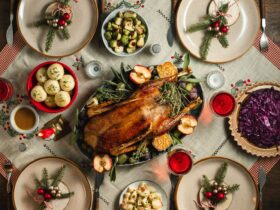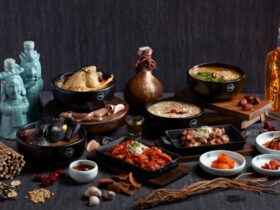Chendol
Slurp up strings of green chendol jelly in this satisfying dessert of shaved ice, coconut milk and gula Melaka (palm sugar from Malacca, the origin of this dessert). The Singaporean style usually has red beans, grass jelly and perhaps even sweet corn.
Satay
The term “Satay” is actually derived from the Tamil word “sathai”, which means “flesh”. Chinese-style satay has a zebra crossing pattern of lean meat and fat, with Chinese “five spices” in its marinade, but the Malay marinade is sweeter and more authentic.
Chicken Rice
The components of chicken, rice and chilli are critical in what makes chicken rice good. Many claim that authentic Hainanese chicken rice must be served plain without drizzling any thick soy sauce (a usual accompanying condiment).
Carrot Cake
This is not the Western carrot cake with icing but a local Chinese dish. The black version of carrot cake or chye tau kway with sweet black sauce was brought to Singapore by our Chinese forefathers, and locals later created the white version.
It consists of fried preserved radish, egg and starch cake. “Carrot cake” is actually an English misnomer, as the Chinese word for “radish” is almost the same as “carrot”.
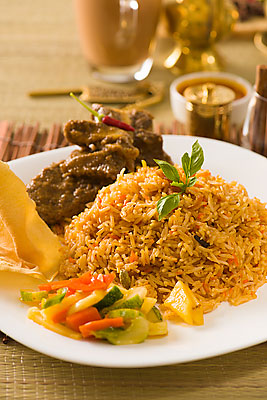
Nasi Biryani
In Singapore, this fragrant Indian dish of basmati rice, and chicken or mutton curry has evolved due to local Malay influence. The secret to good biryani is in the basmati rice.
Tau Huay
Originating from China, the soft, smooth texture of the curd that retains the soya beans’ taste is what differentiates good tau huay from the average.
Freshly-made bean curd at a stall is generally softer, finer and smoother, and tastier. There are a few popular names including Selegie, Rochor and Lao Ban.
Kway Chap
Many would baulk at the thought of eating pig innards, but kway chap has become so commonplace that we don’t think twice about eating pig intestines, skin, pork belly, stomach and even ears. Timing is important, and good hawkers know how to cook the offal perfectly, and then serve with kway (broad rice noodles) in tasty broth.
Bak Chor Mee
This simple Southern Chinese Teochew dish consists of vinegar, minced meat, noodles and a sauce made up of chilli, vinegar, soy sauce and pepper, so it is spicy and pungent at the same time. Fresh ingredients – something Teochews pride themselves on – such as egg noodles of good quality and the right balance of chilli and vinegar make a good dish of bak chor mee.
Bak Kut Teh
During Singapore’s post-war years, pork bones were boiled together with garlic and pepper to make this Teochew soup, which coolies – Chinese labourers – consumed as a nutritious energy boost.
It was a premium hawker dish, and the Hokkiens who were competing with the Teochews for work came up with a version with more soy sauce and herbs.
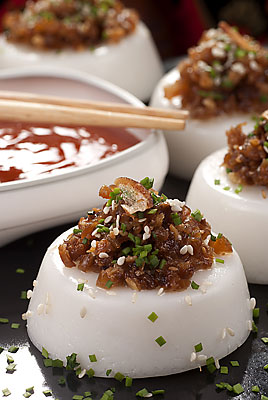
Chwee Kueh
Literally “water cake” in Teochew, it is so named because of the little dimple in the middle, where water collects after steaming.
It tastes somewhat like rice, except that it is smoother, and is topped with chye poh (pickled radish).
ADVERTISEMENTS



